John Nelson - Berlioz: Beatrice et Benedict (1992)
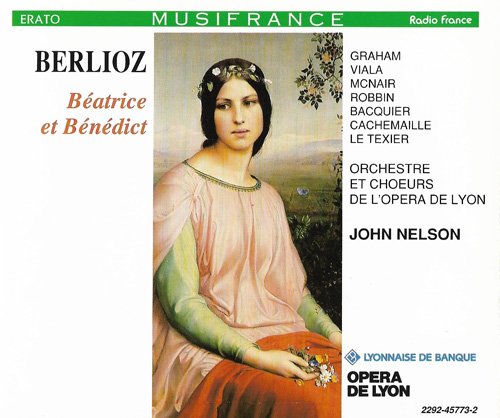
Artist: John Nelson
Title: Berlioz: Beatrice et Benedict
Year Of Release: 1992
Label: Erato
Genre: Classical
Quality: FLAC (image + .cue, log, artwork)
Total Time: 01:51:38
Total Size: 551 MB
WebSite: Album Preview
Tracklist:Title: Berlioz: Beatrice et Benedict
Year Of Release: 1992
Label: Erato
Genre: Classical
Quality: FLAC (image + .cue, log, artwork)
Total Time: 01:51:38
Total Size: 551 MB
WebSite: Album Preview
Disc 1
1. Béatrice et Bénédict, opera, H. 138: Overture
2. Béatrice et Bénédict, opera, H. 138: Act I - Scene 1: No 1 - Le More est en fuite
3. Béatrice et Bénédict, opera, H. 138: Act I - Scene 2: Enfin cette guerre est terminée/Scene 3 - Monseigneur, je vous annonce l'arrivé
4. Béatrice et Bénédict, opera, H. 138: Act I - Scene 4: No 2 - Le More est en fuite/Scene 5 - Ne l'écoutez pas
5. Béatrice et Bénédict, opera, H. 138: Act I - Scene 5: No 2 - SICILIENNE
6. Béatrice et Bénédict, opera, H. 138: Act I - Scene 6: No 3 - Je vais le voir
7. Béatrice et Bénédict, opera, H. 138: Act I - Scene 7: Recevez mes félicitations, général!
8. Béatrice et Bénédict, opera, H. 138: Act I - Scene 7: No 4 - Comment le dédain pourrait-il mourir?
9. Béatrice et Bénédict, opera, H. 138: Act I - Scene 8: Ma fille, suivez-moi/Scene 9: Bénédic, ne partez pas
10. Béatrice et Bénédict, opera, H. 138: Act I - Scene 9: No 5 - Me marier? Dieu me pardonne!
11. Béatrice et Bénédict, opera, H. 138: Act I - Scene 10: Je vous quitte, messieurs, vous me convertiriez/Scene 11: Allons, chacun de vo
12. Béatrice et Bénédict, opera, H. 138: Act I - Scene 11: No 6 - Mourez, tendres époux
13. Béatrice et Bénédict, opera, H. 138: Act I - Scene 11: Ah! mon Dieu! vous me beuglez cet épithalame/Scene 12 - Je ne conçois pas qu'u
14. Béatrice et Bénédict, opera, H. 138: Act I - Scene 13: No 6 - Mourez, tendres époux
15. Béatrice et Bénédict, opera, H. 138: Act I - Scene 13: Comment? mourez?/Scene 14: Eh bien, Léonato/Scene 15: Non, il faut que le mond
16. Béatrice et Bénédict, opera, H. 138: Act I - Scene 15: No 7 - Ah! Je vais l'aimer
17. Béatrice et Bénédict, opera, H. 138: Act I - Scene 15: Voici la belle Hero/Scene 16: Je sais bien bon gré à mon père
18. Béatrice et Bénédict, opera, H. 138: Act I - Scene 16: No 8 - Vous soupirez, Madame?
Disc 2
1. Béatrice et Bénédict, opera, H. 138: Entracte - Sicilienne
2. Béatrice et Bénédict, opera, H. 138: Act II - Scene 1: Du vin! du vin
3. Béatrice et Bénédict, opera, H. 138: Act II - Scene 1: No 9 - Le vin de Syracuse
4. Béatrice et Bénédict, opera, H. 138: Act II - Scene 2: No 10 - Dieu! Que viens-je d'entendre?
5. Béatrice et Bénédict, opera, H. 138: Act II - Scene 3: Qu'as-tu donc, Béatrice?
6. Béatrice et Bénédict, opera, H. 138: Act II - Scene 3: No 11 - Je vais d'un coeur aimant
7. Béatrice et Bénédict, opera, H. 138: Act II - Scene 3: On Nous attend, chère Ursule
8. Béatrice et Bénédict, opera, H. 138: Act II - Scene 3: No 12 - Viens! Viens, de l'hyménée
9. Béatrice et Bénédict, opera, H. 138: Act II - Scene 4: Ciel!/Scene 5 - Restez, ma chère nièce!
10. Béatrice et Bénédict, opera, H. 138: Act II - Scene 5: No 13 - Dieu qui guidas nos bras pour chasser l'infidèle
11. Béatrice et Bénédict, opera, H. 138: Act II - Scene 6: No 14 - Ici l'on voit Bénédict l'homme marié
12. Béatrice et Bénédict, opera, H. 138: Act II - Scene 6: No 15 - L'amour est un flambeau
Béatrice et Bénédict, Berlioz's last completed work, is based on Shakespeare's Much Ado About Nothing, but the libretto, by the composer, dispenses with most of the intrigue of the original and reduces the plot to a single premise: Béatrice et Bénédict mask their affection for each other by squabbling, and then finally come to their senses and get married. Although designated an opera, it is closer in effect to an opéra comique because of its very extensive use of spoken dialogue. The effectiveness of a recording of an opera with this amount of dialogue depends at least in part on the persuasiveness of the spoken drama, and on that count this version is largely successful because it uses professional actors. They make the comedy plausibly fun, so that the listener is fully engaged, not just waiting around impatiently for the music to start up again. A great amount of attention has been given to production values, with impressive sound effects and realistic spatial blocking. The vocal performances are for the most part well taken, but the women outshine the men. Soprano Sylvia McNair in the relatively small role of Héro practically steals the show. Her aria, "Je vais le voir," is the undisputed highlight of the album because of the music -- this is Berlioz at his most melodically eccentric, most deeply felt, and most inspired -- and because of McNair's radiant, soaring performance. A close runner-up is the gorgeous, graceful women's trio, "Je vais d'un coeur aimant être la joie et le bonheur suprême," with McNair, Susan Graham as Béatrice, and Catherine Robbin as Ursule, Héro's lady-in-waiting. The rhapsodic duet with McNair and Robbin, "Nuit paisible et sereine!" also deserves mention, as does Béatrice's aria, "Dieu! que viens-je d'entendre?"; Berlioz's writing for women in this opera is consistently spectacular. In the opera's leading role, Graham sings with warmth and smooth lyricism, but because of the fragmented nature of the opera, it's difficult for her, or almost any other cast member, for that matter, to establish much of a sense of dramatic momentum. An exception is baritone Gabriel Bacquier as Somarone, a comic character invented by Berlioz to lampoon the pomposity of the composer Spontini. Bacquier is in excellent vocal form and he is a natural comedian, and he alone performs the spoken dialogue as well as singing. The remaining singers, Jean-Luc Viala as Bénédict, Vincent le Texier as Don Pedro, and Gilles Cachemaille as Claudio, are adequate at best. John Nelson, leading the Orchestra and Chorus of l'Opéra de Lyon, delivers an exceptionally polished performance and keeps things moving at a vivacious clip. The sound of the 1991 recording is disappointingly one-dimensional (except, paradoxically, for the sections featuring the actors), dull, and sometimes distant. -- Stephen Eddins

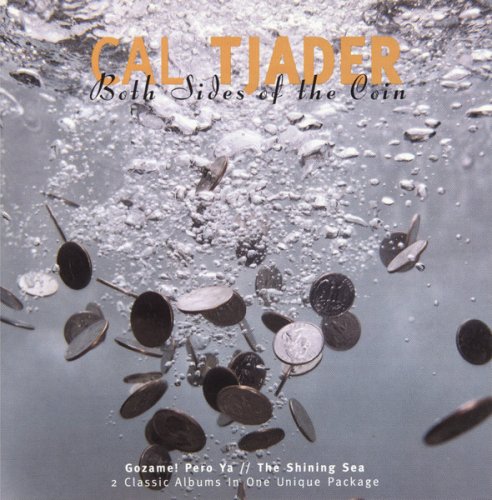
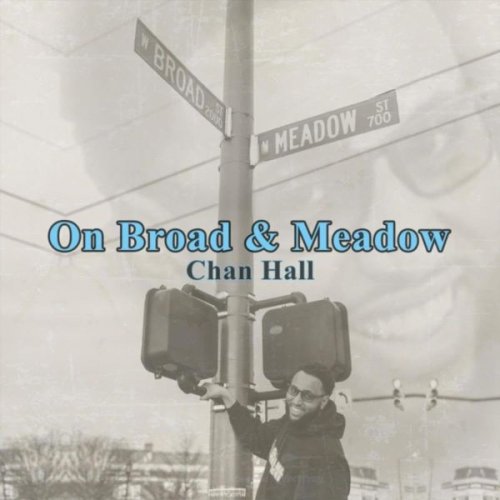
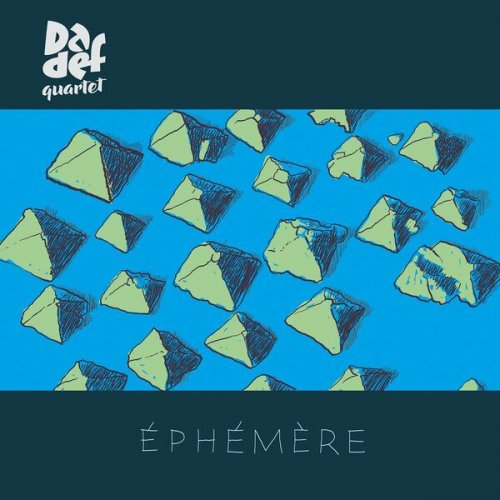
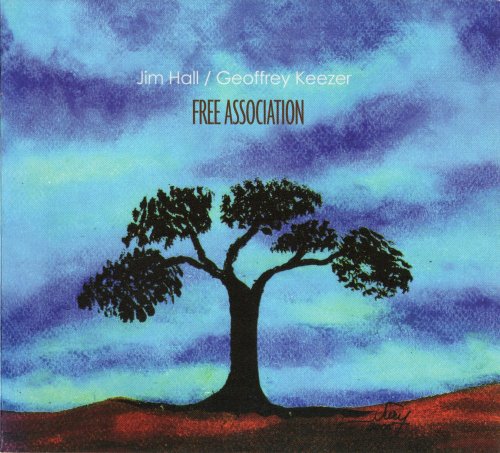
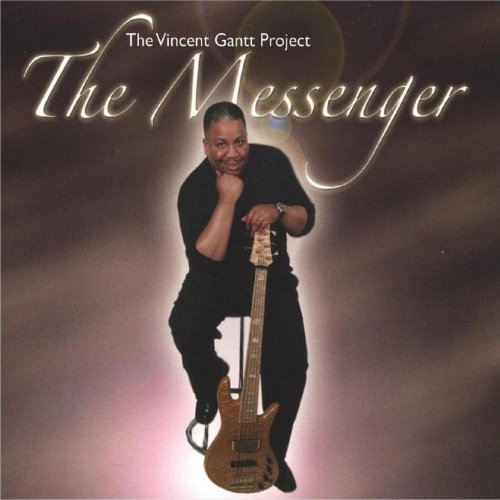

![Chet Baker Quartet - Chet Baker in Paris Vol. 2 (2024) [SACD] Chet Baker Quartet - Chet Baker in Paris Vol. 2 (2024) [SACD]](https://www.dibpic.com/uploads/posts/2026-01/1769668942_f2353a8e3dbc949d6442aa29320fe6c0.jpg)
![Putumayo - French Bossa Nova by Putumayo (2026) [Hi-Res] Putumayo - French Bossa Nova by Putumayo (2026) [Hi-Res]](https://www.dibpic.com/uploads/posts/2026-01/1769675125_a0958635985_10.jpg)